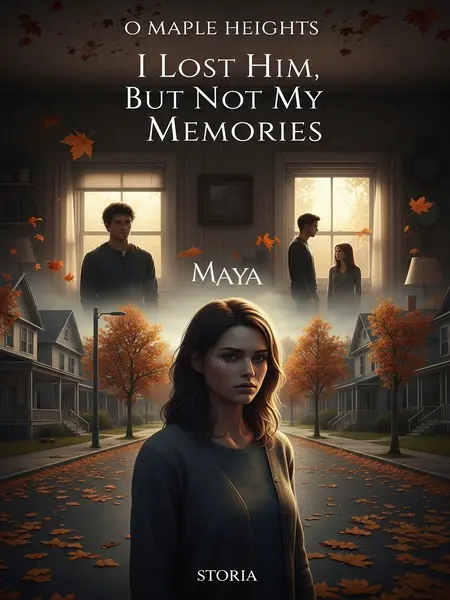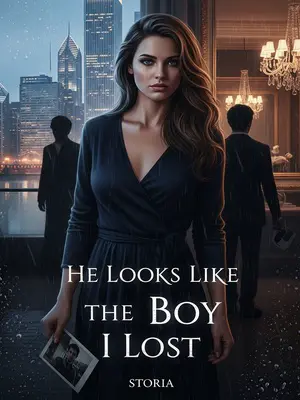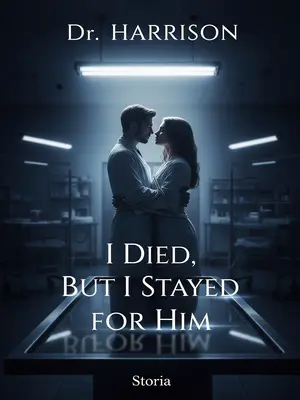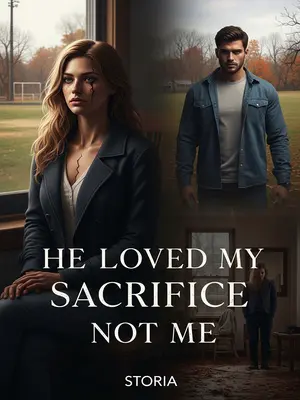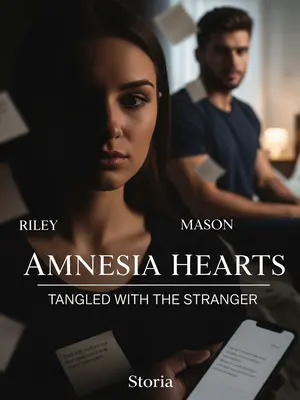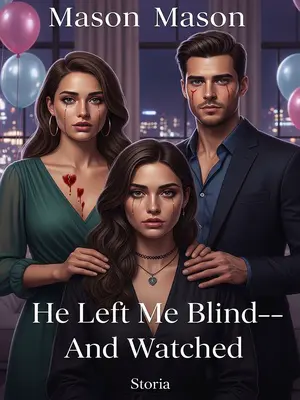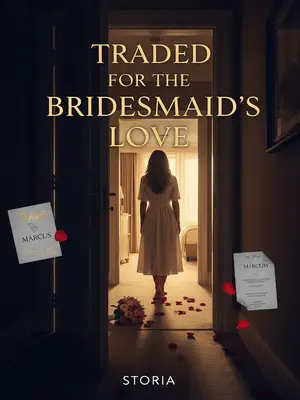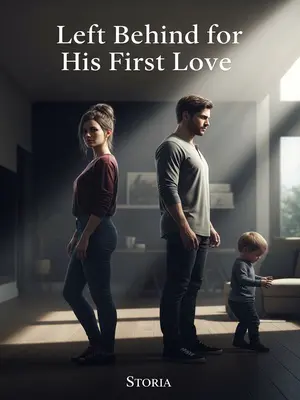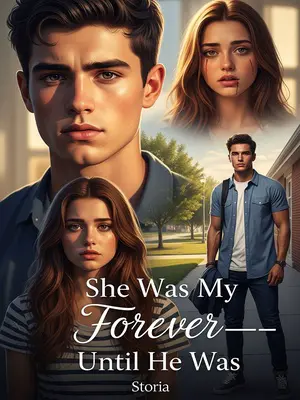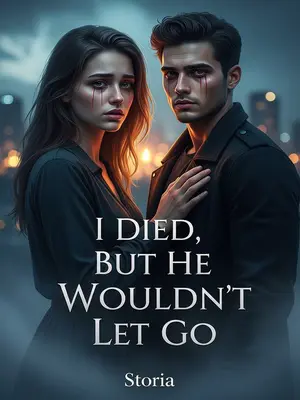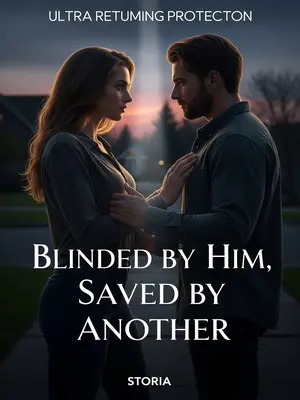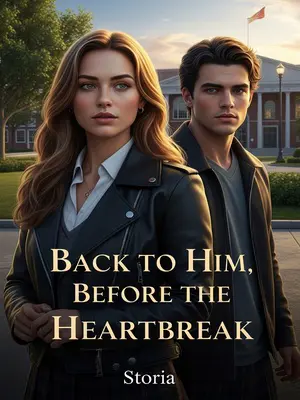Chapter 5: The Last Thread
She’d always make extra for me—mac and cheese, chicken pot pie, chocolate chip cookies still warm from the oven. Every time I walked in, it felt like coming home. I felt like a stray she’d taken in, and I never wanted to let her down.
Even if just a little comfort, it’s worthy of all the years between me and Adam.
It was the least I could do. For him, for her, for all of us.
The body was cremated the next day—I drove with them.
The drive to the funeral home was silent. The sky was gray, threatening snow. I kept my eyes on the road, hands gripping the wheel until my knuckles turned white.
A lot of funeral homes are like this: pay a bit more, and you can watch your loved one being pushed into the cremator for the last time. It’s not something I’d ever thought about before, and honestly, it made my stomach twist. But I guess some people need that closure, need to see it to believe it’s real.
Adam died in a car accident—the mortician patched him up, so he looked as young and handsome as before.
He wore his favorite navy suit, the one he’d worn to prom. His hair was neatly combed, his hands folded over his chest. He looked peaceful, almost like he was napping after a long day.
Only his face was unnaturally pale, eyes gently closed, mouth peaceful, as if sleeping.
I reached out, brushing a strand of hair from his forehead. My fingers trembled. I wanted to memorize every detail, to hold onto this version of him forever.
Then, bit by bit, he was pushed into the blazing furnace. Bit by bit, until he was gone.
The flames flickered behind the glass, swallowing him whole. I pressed my hand to my mouth, trying not to sob. It felt final, irreversible.
At that moment, I truly understood what death was. There’s no coming back. No do-overs.
A guy over six feet tall, now just ashes in a box.
I stared at the urn, unable to reconcile the boy I’d loved with the handful of gray dust inside. It didn’t seem possible. It didn’t seem fair.
From then on, Adam Callahan was gone.
His name felt heavy on my tongue, like a secret I wasn’t allowed to share. I kept repeating it in my head, afraid I’d forget how it sounded.
The name "Adam Callahan" turned into a kind of secret code—outside of us, nobody remembered there was ever such a person.
The world moved on, oblivious. Only those of us who loved him carried the weight. Only we remembered the jokes, the dreams, the little things that made him Adam.
The one who accompanied me through half my life, in the end became a memory I chewed over alone.
I wanted to call someone, to tell them about the time he tried to teach me to skateboard and I ended up with a bruised tailbone. But there was no one left who’d remember it the way I did.
That time, that feeling, only the two of us witnessed. Now he’s just ashes, and I’m the only one left to remember.
Grief is lonely. Even surrounded by people, I felt adrift, untethered. It was just me and my memories, replaying in an endless loop.
Mrs. Callahan collapsed in Mr. Callahan’s arms, sobbing, her grief tearing at her soul. There was too much sorrow—so much that the room couldn’t contain it.
Her cries echoed off the walls, raw and animal. I wanted to comfort her, but the words caught in my throat. What comfort is there, really, when you’ve lost your only son?
I couldn’t stop my own tears, either, streaming down my cheeks, leaving two clear tracks.
I tried to hold it together, but the dam broke. The tears came hot and fast, blurring my vision. I didn’t bother to wipe them away.
The tears wouldn’t stop, just kept coming.
I hiccuped, trying to breathe through the sobs. My chest ached, my head throbbed. I felt like I was drowning.
For the first time, I truly felt the meaning of death, and fear just rose up inside me. Like a cold wave.
I’d always thought I was tough, that I could handle anything. But death is different. Death is final. It makes you realize how fragile everything is, how easily it can all be taken away.
I’m an empathetic person—I can’t stand others crying. When my mom cries, I cry; when my grandma cries for my grandpa at his grave, I cry too, even if I have no memory of him. I just can’t help it.
My grandpa died when I was two—a baby can’t remember. I vaguely recall an image, just a black-and-white hospital bed.
Sometimes I think I invented the memory, pieced it together from stories and old photos. But it feels real to me, even now.
But when someone close to me sobs, my eyes turn red too.
It’s automatic, like a reflex. I can’t stop it, no matter how hard I try.
Sometimes I don’t even know what I’m crying for—just feel sad, a pain in my heart, like someone’s squeezing it, won’t let go.
Sometimes it’s a soft sob, sometimes a loud wail.
Sometimes I cry quietly, tears slipping down my cheeks in the dark. Sometimes it’s messy and loud, ugly and unrestrained. Grief has no rules.
But at this moment, I cried in confusion. I didn’t even know what I was mourning. Just felt like a piece of me was missing.
It’s a strange feeling. He’s not my boyfriend now—I knew when we broke up that I had no love left. Aside from the ex-boyfriend title, at most we were friends, not even as close as him and Tyler. But I really was sad, and for a moment I didn’t know if I still loved him.
Grief is complicated. It doesn’t care about titles or timelines. It just hurts.
Tyler squatted in the corner, silently wiping his tears. Mr. Callahan suddenly seemed shorter, his back curled with grief, yet he still comforted Mrs. Callahan in his arms.
I watched them, feeling helpless. I wanted to help, but I didn’t know how. Sometimes, all you can do is bear witness.
The pain of parents burying a child is like slow torture. My mom had a childhood friend whose son died the summer after the SATs, hit by a drunk driver; of three companions, two died and one was left paralyzed.
I remember my mom coming home from the funeral, eyes swollen, voice hoarse. She hugged me tight, wouldn’t let go. I didn’t understand then. Now, I do.
That woman nearly went crazy, muddled through a few weeks before pulling herself together, because she still had a second son to care for.
She found a way to keep going, for the sake of the child she had left. I admired her strength, even as I wondered if I could ever be that strong. I honestly don’t know if I could.
As for losing your only child in middle age, I can’t imagine the pain.
It’s a nightmare I wouldn’t wish on anyone. The kind of loss that changes you forever.
Even a lost toddler can tear a family apart, let alone a child raised for over twenty years suddenly dying.
I remembered news stories, stories from neighbors—families that fell apart after a loss, parents who never recovered. Grief is a heavy thing to carry.
My mom once discussed this with me. She said if I died unexpectedly, she wouldn’t be able to go on living.
She said it quietly, like a confession. I brushed it off at the time, but now it echoed in my head. I understood what she meant. It scared me.
Mrs. Callahan is tougher than my mom, and she has Mr. Callahan—the two of them can support each other through the rest of their lives. It’s not impossible.
They clung to each other, drawing strength from their shared pain. I hoped it would be enough. I really did.
I told my mom about Adam—she sighed too.
She sent me a long text, full of platitudes and prayers. She told me to take care of myself, to be gentle with my grief. I tried to listen.
Life is often so sudden. No one knows what will happen in the next minute. Everything changes in an instant.
When misfortune comes, all you can do is grieve—helplessly.
You can’t bargain with fate. All you can do is pick up the pieces and try to keep going.
The funeral was handled by Mrs. Callahan. The accident was too sudden, so we could only choose a photo from Adam’s old pictures.
We sat around the kitchen table, sorting through old albums and phone galleries. Every photo felt like a punch to the gut. I kept bracing myself for the next one.
In the end, we settled on an ID photo.
It wasn’t perfect, but it was him—clean-cut, smiling just enough. It felt right, somehow.
That ID photo was taken at a studio with him. It was very good, and very expensive.
We’d gone together, laughing about how awkward we looked. He’d teased me about my serious expression, told me to lighten up. Now, I was grateful we’d splurged on the good photographer.
Too much time had passed—Mrs. Callahan couldn’t find an ID photo of Adam in her phone, so she brought his phone to me, asking if I could unlock it.
She handed it over with shaking hands, eyes pleading. I nodded, taking it gently. The screen was cracked, but it still worked. I felt a pang in my chest.
She tried his birthday, couldn’t unlock it, then had no clue, didn’t dare guess, so her first thought was me.
I smiled, just a little. Of course she’d come to me. Some things never change.
Without a second’s thought, I immediately remembered his phone password.
It was muscle memory. My fingers moved before I could think. The numbers felt familiar, comforting.
Adam’s password was simple: when we were together, it was my birthday; when we broke up, it was 777777.
It was his little joke, a way to keep me close even when we were apart. I rolled my eyes every time he changed it, but now it made me smile. It was so him.
The numbers matched his name.
He was always sentimental, in his own weird way. I never gave him enough credit for that.
This time was no exception—the phone unlocked easily.
I handed it back to Mrs. Callahan, who looked at me with watery eyes. She squeezed my hand, grateful.
Mrs. Callahan held the phone helplessly. The screen was cracked, but luckily not leaking—still usable.
She scrolled slowly, her thumb trembling. Every photo brought fresh tears. I sat beside her, rubbing her back, whispering that it was okay to cry. I felt her pain like it was my own.
Thousands of photos in the album made Mrs. Callahan cry again instantly.
She sobbed quietly, shoulders shaking. I handed her a tissue, wishing I could do more.
"Maya... do you know where his ID photo is stored?" Her hand trembled slightly, not daring to scroll through the album, afraid she’d cry herself faint again.
I nodded, taking the phone gently. I knew exactly where to look. Adam was nothing if not predictable.
I patted her back comfortingly, took the phone, and found a folder in the cloud drive.
There it was, right where he’d told me it would be. I opened it, heart pounding. My hands shook.
Inside were not only his, but mine too.
I froze, staring at the photos. There were pictures of me—candid, smiling, caught off guard. I didn’t know he’d kept them. My chest tightened. It was like a punch to the gut.
I was dazed for a moment, my chest suddenly tight.
I blinked back tears, scrolling slowly. It felt like a secret gift, a reminder that he’d loved me, even when I doubted it.
I never had the habit of checking his phone, but he always told me everything, so I subconsciously remembered.
He was an open book, always sharing passwords, stories, secrets. I never realized how much I’d relied on that until now. It hit me, how much I’d taken for granted.
Like the location of this ID photo—he told me after saving it.
He’d texted me, “Don’t forget, the photos are in the cloud, folder labeled ‘Important.’” I’d rolled my eyes, but saved the info anyway. Now, I was grateful I had.
Mrs. Callahan was flustered and grateful, thanking me repeatedly.
She squeezed my hand, tears streaming down her face. I hugged her, wishing I could take away her pain. I held her tight, hoping it helped, even a little.
At the funeral, the black-and-white photo stood quietly on the table—the person in the photo still youthful, suit neat, features delicate.
People filed past, leaving flowers, murmuring condolences. I stood off to the side, watching, remembering. The photo felt both too small and too big—too small to contain all that he was, too big for the tiny table it sat on. I just stared at it, lost.
That ID photo was taken after graduation, much more innocent than now. Adam hadn’t taken a new one in years.
His hair was shorter then, his eyes brighter. He looked hopeful, like he was ready to take on the world. I missed that version of him.
Neither had I.
I realized I hadn’t updated my own photo in years, either. Maybe I was clinging to the past, too.
As if that one would last a lifetime.
Funny how we freeze ourselves in time, hoping to hold onto something that was never meant to last.
The funeral wasn’t a traditional one. Adam was too young—many customs couldn’t be followed, so we just had a simple memorial service at the local church.
The church was small, the pews creaking under the weight of grief. There were no elaborate rituals, just music, candles, and stories shared by those who loved him. It felt honest, if nothing else.
All his friends came—Tyler was just the closest among them.
I watched them gather, hugging, crying, laughing through tears. Tyler stood at the front, eyes red, voice shaking as he read a poem Adam had loved. It broke my heart all over again.
Girls’ friend groups can be subdivided, and so could theirs.
There were the gamers, the jocks, the quiet ones who only showed up for big moments. Each group had their own memories of Adam, their own stories to tell.
Among all his friends, quite a few were my exes.
It was awkward, seeing them all in one place. We exchanged nods, half-smiles, the unspoken understanding that we’d all loved Adam, in our own ways.
It’s a bit embarrassing to say—Adam only ever dated me, but I’d dated several before him.
I felt exposed, like everyone was tallying up my past. But no one said anything. We were all here for Adam, and that was enough.
But to call it dating isn’t quite accurate.
Most of it was just companionship, filling the empty spaces in our lives. We were young, lonely, looking for connection wherever we could find it.
It was just finding someone to share life with, someone to complain about studying, share video games, talk about movies, occasionally discuss life.
We’d text about nothing, spend hours on the phone, play games until our eyes burned. It wasn’t love, not really. It was just needing someone to listen.
Anyone would do, as long as someone was there for me.
I wasn’t picky. I just wanted someone to care, even if it was only for a little while.
If too unfamiliar, I’d ignore them; if a classmate I knew well, they’d gradually become closer.
It was always about comfort, familiarity. I didn’t need fireworks—just someone to share the day with.
Usually it started as talking about interests, then sharing more of life.
One minute we’d be arguing about our favorite movies, the next we’d be talking about family, dreams, fears. It was easy to slide into intimacy.
Then they’d confess, and I’d agree.
It wasn’t always romantic. Sometimes it was just easier to say yes than to say no. I didn’t want to lose a friend.
If I didn’t, I’d lose a friend to share with, and life would be less fun.
Loneliness was my constant companion. I’d do anything to keep it at bay.
It’s not that I lacked friends—in fact, I was very popular and had many friends.
I had plenty of people to hang out with, but few I could really talk to. There’s a difference.
But it was different—the trivial daily things weren’t shared with them.
I could gossip about teachers, laugh at inside jokes, but when it came to the stuff that really mattered—the stuff that kept me up at night—I kept it to myself.
We could go to class together, go to and from school together, chat plenty, but once home, I was alone.
The house was always quiet. I’d eat dinner in front of the TV, scrolling through my phone, wishing someone would text first.
Just me.
My dad was rarely home, my mom worked late—usually back at nine or ten.
I learned to be independent early. I made my own dinners, did my own laundry, learned how to fix the leaky faucet in the bathroom. It wasn’t glamorous, but it was life.
My funniest memory was staying home all day, frying nine eggs to eat, because there was no bread and I had no money.
I laughed about it later, but at the time, it felt pathetic. I just wanted someone to care, someone to notice if I ate nine eggs for dinner.
That kind of loneliness is hard to bear—I just wanted someone to be there, so I could share even the silly thing of frying nine eggs.
It wasn’t about love or romance. It was about not being invisible.
Whether I liked them or not, it didn’t matter.
I just needed someone, anyone, to fill the silence.
Whoever kept me company, I liked.
I didn’t know how to be alone. I still don’t, sometimes.
But I only accepted chatting, never even went out together, let alone anything more intimate.
I kept my distance, drew lines in the sand. I wasn’t ready for more. I didn’t know how to want more.
Over time, those who kept me company kept changing.
People drifted in and out of my life. Some stayed, some didn’t. It was easier not to get attached.
Back then, Adam just watched coldly, sometimes teased me.
He’d roll his eyes, call me a “serial texter,” joke that I was collecting boyfriends like baseball cards. I’d laugh, but sometimes it stung.
"Another one?"
He’d raise an eyebrow, smirk. I’d smack his arm, tell him to mind his own business. But I knew he cared, even if he pretended not to.
Then I’d hit him.
It became a running joke between us. He’d tease, I’d retaliate, and we’d both end up laughing. It was our thing.
Later, Adam brought this up, full of jealousy, saying he always thought, if all those people had taken a turn, why not him?
He confessed it one night, voice low and earnest. I was surprised—he’d always seemed so indifferent. Turns out, he was paying more attention than I thought.
I wondered too—after sitting next to him for two years, I never had any thoughts, though we got along well, exchanged gifts on birthdays, but no sparks.
We were comfortable, maybe too comfortable. It never occurred to me that we could be more than friends. Until it did.
After thinking it over, I realized:
Back then, people came and went, but it was never me taking the initiative—just sitting there and someone would show interest.
I was passive, waiting for someone to choose me. I didn’t know how to ask for what I wanted.
And Adam, proud as a teenager, didn’t understand love, just watched helplessly.
He was just as clueless as I was. We circled each other for years, too scared to make a move.
If I hadn’t had a moment of feeling for him and taken the initiative, he’d still be passive and clueless.
One day, I just went for it. I texted him, asked if he wanted to hang out, just the two of us. He said yes, and everything changed.
Suddenly shifting from friends to lovers, both of us were quite unaccustomed.
It was awkward at first. We didn’t know how to be together, how to cross that invisible line. But we figured it out, slowly.
Because I took the initiative, it was different from before—so there had to be some changes, right?
We tried new things, went on real dates, held hands in public. It felt strange and thrilling.
So we called another person, the three of us went out together.
Looking back, it was childish—like we needed a chaperone for our own relationship. But it made us laugh, and that was enough.
Now it seems childish and funny, but back then, we enjoyed it.
We were figuring it out as we went along, making mistakes, learning as we went. It was messy, but it was ours.
I didn’t understand what liking was, or how normal couples got along, because my dad only came home every few years.
I had no model for love, no blueprint to follow. I made it up as I went along, hoping I was getting it right.
I never saw what roles couples played in love.
I watched movies, read books, tried to piece it together. But nothing felt real. Nothing felt like us.
Logically, Adam should have known.
His parents were the poster couple—holding hands at the grocery store, leaving little notes for each other, dancing in the kitchen on Sunday mornings. I envied that.
Mr. and Mrs. Callahan were very loving—always transferring money, buying flowers, giving gifts on holidays.
They made love look easy, effortless. I wondered if it was really that simple, or if they were just good at pretending.
When I heard about it, I couldn’t help but envy.
I wanted what they had—stability, affection, someone to come home to. I didn’t know how to ask for it, but I wanted it all the same.
Not envying Mrs. Callahan, but envying Adam.
He grew up wrapped in love, never doubting he was wanted. I wondered what that felt like.
I wanted to know what it felt like to live in a loving family—supposedly very happy.
I imagined big family dinners, laughter echoing through the house, hugs at the door. I wanted that, more than anything.
It should be, anyway. I thought Adam was happy, even if his dad grounded him when he yelled at his mom during a fight.
He’d complain about it, but I could tell he felt safe, even when he was angry. I never had that luxury.
Adam often told me these stories, even when we were just friends.
He’d call late at night, vent about his parents, ask for advice. I listened, secretly jealous of his problems.
Maybe from then, I already had a filter for him.
I saw him through rose-colored glasses, forgiving things I wouldn’t have in anyone else. He was Adam. That was enough.
What I wanted, what I didn’t have, he seemed to get easily.
It made me resentful, sometimes. But mostly, it made me love him harder.
But after a short romance, we broke up.
It ended as quietly as it began. No big fight, no betrayal. We just drifted apart, ran out of things to say.
No specific reason—a bit like with the others, topics ran out and there was nothing left to talk about.
We tried to force it, to find common ground, but it wasn’t enough. Sometimes love just fades.
And he wasn’t as happy as I thought.
He confessed that he felt lost, unsatisfied. I didn’t know how to help him. I didn’t know how to fix it.
Because Adam never knew contentment.
He always wanted more—more excitement, more affection, more everything. I couldn’t keep up.
He had everything I didn’t, lived in the environment I envied, no academic pressure, but still liked to complain.
It frustrated me, made me feel like nothing I did was enough. I wanted to shake him, tell him to appreciate what he had. But I never did.
There was always a voice inside me yelling: why, when he has such a harmonious life, does he still not strive, so fragile? Why isn’t he satisfied?
I envied him, but also resented him.
It was a toxic mix—love, envy, resentment, longing. No wonder we kept breaking up.
Looking back, I realized the feelings were no longer pure.
We’d outgrown each other, but neither of us wanted to admit it. We clung to what we had, afraid to let go.
In front of him, I was always inferior—even though I was much better than him, I couldn’t erase the gap from my family background.
It wasn’t about money. It was about love, about feeling wanted, about belonging. I never felt like I measured up.
Not for money, but for love.
I craved it, chased it, never quite caught it.
Mrs. Callahan would praise him for five kills in a game; my mom would keep saying I was ugly. Mrs. Callahan would comfort him for bad grades, but when I got into a top university, my mom would ask why not a better one. Mr. Callahan would wire money on Valentine’s Day; my dad cheated for two years and came back with debts.
It was like we were living parallel lives, never quite intersecting. I envied his ease, his confidence. He envied my drive, my ambition. We were always just out of sync.
......
It made me feel, deep down, that he and I were from different worlds.
We spoke the same language, but we never really understood each other. Maybe we never could.
Even though my parents later loved me, the childhood imprint couldn’t be erased.
I tried to let it go, to forgive, to move on. But some wounds never heal completely.
Even after breaking up, I still envied him.
I envied the way he moved through the world, unburdened. I envied his ordinary, extraordinary life.
Envied the extraordinariness of his ordinary life.
Sometimes, ordinary is the hardest thing to achieve. I wanted it more than anything.
We’re all just insignificant parts of the ordinary world—no cheat codes, no perfect characters.
We muddle through, making mistakes, learning as we go. No one has it figured out. We just keep trying.
People are complicated—everyone has good and bad.
Adam was like this, and so was I.
We were both flawed, both searching for something we couldn’t name.
After breaking up, we could only be loosely connected.
We drifted, circling each other from a distance. Sometimes we’d text, sometimes we’d run into each other at the grocery store. It was never quite enough.
Because there were too many ties, couldn’t cut them all.
Our lives were too tangled to separate completely. We shared friends, memories, inside jokes. Cutting him out would have meant cutting out half my life.
Later I dated again, and only then did I truly know what love felt like.
He was kind, attentive, gentle. He peeled oranges for me, remembered my favorite songs, held my hand when I was sick. It was simple, easy, uncomplicated.
He would peel oranges for me when I wanted to eat, would take care of me when I was sick, would remember what I said, would be gentle only to me. I never realized how much I needed that.
I didn’t like him that much, but I could manage a six out of ten.
It wasn’t fireworks, but it was enough. Sometimes, enough is all you need.
That was enough.
I told myself it was, anyway. Maybe I was just tired of chasing after more.
But the good times didn’t last.
People change, feelings fade. Even the best things end, sometimes.
Someone may treat you well, but it’s hard for them to always treat you well. This truth is universal, never changes.
I learned that the hard way. You can’t rely on anyone to make you happy. You have to do it yourself.
Sometimes I think I’m too clear-headed, sometimes muddled. Treating love like a game—no wonder Adam called me a "heartbreaker" behind my back.
He wasn’t wrong. I kept my heart guarded, never letting anyone in too deep. It was safer that way.
So what?
I didn’t break the law, didn’t break morality. People can’t even guarantee they’ll be alive the next second—how can I guarantee that the me who liked you a second ago won’t stop liking you the next?
I refused to make promises I couldn’t keep. Love is fickle, unpredictable. I learned to accept that.
That’s how it is.
Maybe it’s cynical. Maybe it’s just realistic. Either way, it’s the truth.
Since the last breakup, I’ve kind of lost interest in this whole messy thing called love.
I focused on work, on friends, on building a life that didn’t revolve around someone else. It was lonely, but it was mine.
Maybe out of conscience, not wanting to hurt others anymore.
I didn’t want to be the villain in someone else’s story. I tried to be kinder, more honest, more careful with people’s hearts.
Love’s shelf life is too short, so I put it away.
I tucked it in a box, shoved it to the back of my closet. Maybe I’d take it out again someday. Maybe not.
But then Adam came back, asking to get back together.
He showed up at my door, eyes wide, hands stuffed in his pockets. He looked nervous, hopeful, like a kid asking for a second chance. My heart skipped.
One lunch break, he quietly came to my seat and asked softly, "Hey, wanna hit the library?"
It was so ordinary, so him. I smiled, nodded, followed him out into the sunshine.
Maybe it was the good sunshine that day, or the quiet around, but following him, I could clearly hear my own heartbeat.
It thudded in my chest, loud and insistent. I wondered if he could hear it, too.
"Thump thump," echoing in my ears.
I tried to act cool, but I was giddy, nervous, excited. It felt like being seventeen again.
Then, tacitly, we got back together.
No big declarations, no promises. Just two people, trying again. Hoping it would be different this time.
He just confessed, and I agreed without hesitation. I didn’t even think about it—just said yes.
Maybe I was tired of being alone. Maybe I missed him more than I realized. Maybe I just wanted to believe in us, one more time.
Maybe I felt a bit guilty, since I had insisted on breaking up before.
I didn’t want to hurt him again. I wanted to make it right, to give us one last shot.
If it were the old me, I’d never have felt guilty.
But I’d changed. Life had changed me. I was softer, more forgiving, less sure of everything.
Now my conscience had awakened.
I wanted to be better, for him, for myself. I wanted to love without hurting.
Ever since my parents cared more about me, I clearly felt my feelings growing richer.
Their love gave me room to grow, to feel, to hope. I started to believe I deserved good things, too.
After my dad came back, he never left again, scraped together money to pay off debts, found a job locally—not high-paying, but he could look after me. At least I wouldn’t have to eat only fried eggs.
He’d leave notes on the fridge, buy my favorite snacks, ask about my day. It wasn’t perfect, but it was something.
I regretted not learning to cook earlier, but then realized no one taught me—my mom always brought food home, the house was empty, and I was only in second or third grade, had to stand on a stool to reach the stove.
I laughed about it now, but back then, it felt lonely. I wished someone had shown me how to make pancakes, how to boil pasta without burning it.
Maybe as people get older, they love their kids more. I was uneasy at first, but gradually got used to it.
I learned to accept their love, to let it in, even when it felt awkward. It was a slow process, but it changed me.
I learned to buy gifts for Mother’s and Father’s Day, happy to see their joy. I learned to express love to friends, not just accept their care.
I started saying “I love you” back, hugging my mom without flinching, texting friends just to say I missed them. It felt good.
Learned to be loved, and to love.
It was scary, but it was worth it. I realized I didn’t have to do it all alone.
It seemed like in a short time, I was transformed, understanding much about feelings.
I was still learning, still making mistakes. But I was trying, and that was enough.
Maybe I understood why some are indifferent, some are passionate, some are heartless, some value feelings deeply.
We’re all shaped by our stories, our families, our scars. I started to forgive myself for the things I couldn’t change.
Nature and nurture both matter.
I read somewhere that even the coldest hearts can be softened by kindness. I wanted to believe that was true.
Someone did an experiment: if a person with antisocial personality is raised in a loving family, that gene is unlikely to show.
It gave me hope, thinking that love could change us, even just a little.
So environment is crucial.
I tried to create a better one for myself, to surround myself with people who cared, who understood.
I often feel lucky—that awkward little girl finally grew up, didn’t lose anything.
I survived. I made it. That’s something, isn’t it?
After getting back together, Adam seemed like a different person.
He was attentive, thoughtful, present in a way he never had been before. It was like he’d finally figured out what he wanted, and it was me. I almost didn’t recognize him.
I don’t know why, what made him suddenly understand love. Maybe he didn’t get it before, or maybe he did but didn’t love me enough to do anything.
I didn’t question it too much. I just enjoyed it, for as long as it lasted.
What kept us entangled all these years was probably this mystery.
We were always chasing something—answers, closure, each other. Maybe that’s why we could never let go.
I could never figure out what he was thinking, how much he loved me, enjoying the guessing while doubting the relationship.
It kept things interesting, if nothing else. But it was exhausting, too.
The unknown is mysterious, and the mysterious is alluring.
I was drawn to him, even when I knew better. Maybe that’s love. Maybe it’s just habit.
Maybe this time, Adam really fell in love.
He showed it in small ways—texting good morning, remembering my coffee order, holding my hand in public. It felt real, for once.
He started caring about my moods, started truly feeling like we were in love.
He’d ask about my day, listen when I vented, make me laugh when I wanted to cry. I started to believe we could make it work.
At this point, we were no longer as naive and awkward as before, confused about our feelings and shy to express them.
We’d grown up, learned how to communicate, how to fight fair, how to apologize. It made all the difference.
Two years had passed, from youth to adulthood.
We weren’t kids anymore. We had jobs, bills, responsibilities. But we still found time for each other.
Carefree holidays are beautiful, but short.
We took weekend trips, rode bikes by the lake, watched the stars from the hood of his car. It felt like something out of a movie. I wanted it to last forever.
We went out every few days, rode bikes by the lake, held hands in the mall—just being together made the air sweet.
Sometimes we’d sit in silence, just enjoying the moment. It was enough.
We both changed, yet seemed unchanged.
We were older, wiser, a little more scarred. But at our core, we were still the same kids who’d passed notes in math class.
We witnessed each other’s growth, experienced each other’s youth. It’s hard to say what exactly I liked about him—just felt there was a thread, one end him, one end me.
It was invisible, but unbreakable. No matter how far we drifted, it always pulled us back together.
That unspeakable sense of fate—when people around us paired our names, when I lined up all the gifts he gave me, when I saw us both in the same graduation photo, with him always behind me—that fate felt especially strong. I couldn’t ignore it.
It felt like we were meant to be, even when it didn’t make sense. I clung to that feeling, even when everything else fell apart.
Sometimes I thought, maybe this is it for life, maybe it’s just Adam.
I let myself imagine a future—weddings, babies, holidays with both our families. It felt possible, for the first time.
Why not?
But fate is rarely so smooth.
Life has a way of throwing curveballs. Nothing ever goes according to plan.
Or rather, different people ultimately can’t end up together.
Sometimes love isn’t enough. Sometimes, it’s not meant to be.
After high school, we parted ways.
He went south, I went north.
Over three thousand miles apart—a chasm between me and Adam.
We tried to make it work—calls, texts, care packages. But the distance wore us down.
I studied finance—in economics, there’s a term called "rational man"—that’s me to a T.
I made decisions with my head, not my heart. I weighed pros and cons, calculated risks. Love was never part of the equation. Sometimes, I wonder if I missed out.
I clearly knew what I needed, what I cared about, what my future would be. As for love, just a spice on the long road of life.
It was nice to have, but not essential. I convinced myself I could live without it.
Long-distance love, for me, was all benefit, no harm.
No messy emotions, no distractions. Just the comfort of knowing someone cared, from a safe distance.
No need to balance boyfriend and girlfriends, no need to worry about conflicts between love and studies. I just reported my mundane life to him daily, occasionally played his favorite games.
It was routine, predictable. I liked it that way.
I thought this love mode was comfortable enough, but didn’t realize that for Adam, his longing for love outweighed his feelings for me.
He wanted more—more closeness, more affection, more of me. I couldn’t give it to him, not from so far away.
In other words, he wanted closeness, intimacy, real feelings—not this platonic love.
He needed touch, presence, shared experiences. I didn’t understand that, not really.
Pretty boring.
I shrugged it off, told myself he’d get used to it. I was wrong.
After all, it’s not like I’m irreplaceable—maybe that’s how Adam saw it.
He started to drift, pulling away. I felt it, but I didn’t fight it. I thought it was inevitable.
He and I are too different, whether in clarity or background, from hobbies to worldview, we’re completely different people.
We tried to ignore it, to focus on what we had in common. But the differences were too big to bridge.
We were together because it felt right.
We relied on nostalgia, on shared history. It wasn’t enough.
That unspeakable sense of belonging, the familiarity from knowing each other so long, threads us together.
It kept us coming back, even when we knew better.
Looking back, I realize we weren’t really suited.
We loved the idea of each other, more than the reality.
Recalling up to here, the funeral ended while I was lost in thought.
I blinked, realizing the room had emptied. People were gathering coats, hugging, saying goodbye. I wiped my eyes, trying to compose myself.
I wiped away the tears that had fallen at some point, shocked to see both sleeves wet.
I laughed, just a little. Leave it to me to cry through the whole thing.
Looking up, the boy in the central photo smiled gently, and in that instant, all the bad memories seemed blown away, leaving only that smile lingering in my mind.
It was the smile I’d fallen in love with, the one I’d missed most. I let myself remember the good, just for a moment.
Can’t brush it off, can’t take it away.
Some things stay with you, no matter how hard you try to forget.
People say that after someone dies, the good memories replace the bad in the eyes of the living.
It’s true now.
I found myself remembering the best parts—the laughter, the adventures, the love. The rest faded into the background.
There’s regret, there’s pity, there’s the sigh of how he ended up like this.
I wished things had been different. I wished we’d had more time.
Life is so unpredictable.
You can plan all you want, but life has its own ideas.
Not many came to mourn—besides relatives, only a few. Old friends not in touch weren’t told, only close ones.
It was a small gathering, intimate. The people who mattered most were there. It felt right, somehow.
I stood in an inconspicuous corner, watching people come and go, heartbroken.
I felt invisible, just another mourner among many. But inside, I was falling apart.
After the funeral, I drove home.
The drive was quiet, the radio playing soft country songs. I rolled down the window, letting the cold air clear my head.
I learned to drive with Adam, practicing under the sun at the DMV lot. One car for two—when he drove, I’d sit in the passenger seat, occasionally reminding him where he crossed the line.
We’d argue about parallel parking, laugh about our terrible sense of direction. He’d blast the AC, I’d complain it was too cold. Those lessons felt endless at the time. Now, I wished they’d lasted longer.
On the morning of the test, Adam biked to my apartment to pick me up.
He showed up at dawn, helmet askew, grinning like an idiot. I teased him about his bedhead, he teased me about my nerves. It was our ritual.
At five in the morning, Maple Heights was chilly—even in midsummer, the cool wind made you shiver.
We shivered together, hands stuffed in our pockets, breath puffing in the air. The world felt quiet, full of possibility.
I hid behind him, hugging his waist tightly for warmth.
He pretended to complain, but I knew he liked it. I could feel his laughter rumbling through his back.
Riding the bike was our favorite daily thing. To be precise, I loved it—he didn’t seem to.
He’d grumble about the hills, about the cold, but he never said no. I think he liked making me happy, even if he wouldn’t admit it.
But he liked me hugging his waist on the back seat.
He’d squeeze my hands, tell me to hold on tight. I’d bury my face in his jacket, breathing him in.
Later, we got our licenses without a hitch, and I immediately bought a pair of couple’s license covers, forcing him to use a cartoon one despite his reluctance.
He rolled his eyes, called it “embarrassing,” but he used it anyway. I caught him showing it off to Tyler once, pretending not to care.
At a red light, I glanced at the plain black case in the side pocket.
I wondered when he’d switched it out, if he’d kept the old one somewhere. Probably not. Adam wasn’t sentimental like that.
I forgot when it was changed—maybe one time after work, passing a shop, bought it casually.
I’d meant to buy another cute one, but never got around to it. Life got busy, and little things like that slipped through the cracks.
That cartoon cover—who knows where I tossed it.
Maybe it’s still buried in a drawer somewhere, or maybe I threw it out during a cleaning spree. I can’t remember.
Probably after our second breakup, after a big fight, I threw out everything related to him. Out of sight, out of mind—or so I thought.
The reason for the fight was simple: Adam couldn’t stand the loneliness of long-distance, insisted on coming north to see me, I thought the tickets were too expensive, told him not to waste money on travel.
We argued for hours—him saying it was worth it, me saying it was a waste. Neither of us budged. It was about more than money, but we couldn’t admit it.
If you’re going to give that money to the airline, better save it for vacation, right?
I tried to be practical, but maybe I was just scared. Scared of needing him, of letting him in.
Turns out, my vision was too narrow—maybe a few hundred for tickets wasn’t much for him, but for me, it was a lot.
We came from different worlds, no matter how much we tried to ignore it. That gap was always there.
The breakup wasn’t just about the tickets, but our totally different spending habits, and the clash between rationality and emotion.
He wanted grand gestures, I wanted security. We couldn’t find a middle ground. It was frustrating for both of us.
Not two days after breaking up, Adam figured it out, and I also thought breaking up like this was silly, so we got back together.
We both apologized, promised to do better. For a while, we did.
But clearly, something had changed.
There was a distance between us, a hesitation that hadn’t been there before. I tried to ignore it, but it lingered.
Can’t say what, but some atmosphere, to some extent, had an unpredictable chemical change.
We were never quite the same. The trust had cracked, just a little.
What he thought, what he figured out, I don’t know, didn’t ask, and he didn’t say.
We swept it under the rug, pretended everything was fine. It wasn’t. Not really.
We shared daily life as before, video called, played games.
We went through the motions, clinging to routine. It was comforting, but empty.
Don’t know how other couples love—anyway, our daily life was surprisingly harmonious.
We didn’t fight, didn’t argue. But the spark was gone.
So harmonious, it faded away.
It was like living with a roommate—comfortable, but not exciting. I missed the fire, even as I dreaded the burn.
One day, suddenly, there was no passion left—everything was mechanical routine, snapping a photo of lunch to send, waiting half an hour for a reply.
I realized I was bored, restless. I wondered if he felt the same.
Until Adam suddenly proposed breaking up, and I agreed calmly.
No tears, no drama. Just two people admitting it was over.
No argument, no third party—just like the tide rising and falling, after the high, the low must come.
We said goodbye, promised to stay friends. I didn’t believe it, but I wanted to try.
The first few days were a bit hard to get used to, but only at first.
I missed him, but not enough to reach out. I kept busy, filled the silence with work and friends.
After getting home, both my parents were there for once.
They made dinner, asked about my day, tried to cheer me up. I appreciated the effort, even if it didn’t help much.
Mom saw my swollen eyes, didn’t ask much, took some ice from the fridge and wrapped it for my eyes.
She sat beside me on the couch, humming softly. It was the closest we’d been in years.
I lay on her lap.
She stroked my hair, whispered that it would be okay. I wanted to believe her.
"People always have to look forward. Some things, you should let go when it’s time," she gently circled her finger on my temple.
I closed my eyes, letting her comfort wash over me. Maybe she was right.
I squinted comfortably, silent.
We didn’t need words. Sometimes, silence is enough.
I never told my mom about me and Adam, always felt it wasn’t time, but our circles overlapped so much, my mom heard about it from another parent.
She’d drop hints, ask about “that Callahan boy.” I’d dodge the question, change the subject. It was easier that way.
After weighing it, Mom realistically affirmed Adam’s marriage value—from his education, character, to family background.
She made a list, as if she was shopping for a son-in-law. I rolled my eyes, but I knew she meant well.
Her conclusion: Adam was a good marriage prospect. After all, it’s hard to find someone so familiar on dating apps.
She wasn’t wrong. Familiarity is rare these days. But it wasn’t enough.
I just smiled and ignored her, still agreed to break up the third time.
I knew it was the right choice, even if it hurt.
After all, it was Adam who suggested it, and I always found it hard to refuse him—whether it was playing games I didn’t like, watching movies I wasn’t interested in, or this breakup.
I was a people-pleaser, always putting others first. It was a habit I couldn’t break.
I took two more days off, used it to rest at home, then got my mood together and went back to work in Denver.
I threw myself into work, letting the routine numb the pain. It helped, a little.
As if I’d just attended an old classmate’s funeral.
I told myself it was just another loss, just another chapter closed. But it didn’t feel that way. Not really.
But inside, there was always a void—in my precious memories, that boy took up most, and now all had been dug out, leaving a blank.
I tried to fill it with new experiences, new people. But nothing quite fit.
Before, I lived carefree. Now, maybe because I had something on my mind, looking at my tiny four-hundred-square-foot apartment, there were too many memories of Adam.
Everywhere I looked, there was something that reminded me of him—a mug, a blanket, a photo frame. I couldn’t escape it.
The sofa in the living room was chosen together, the frame on the wall was made by him—almost every item had his presence.
I thought about redecorating, starting fresh. But I couldn’t bring myself to change anything. It felt like erasing him all over again.
After our third breakup, during a holiday, our high school class president organized a reunion. It was the first time in half a year I’d seen Adam again.
I was nervous, unsure how to act. But when I saw him, it was like no time had passed. We fell back into old patterns, laughing, teasing, pretending nothing had changed.
After the party, he was sent to take me home. It wasn’t necessary—I told him quietly, but for some reason, he insisted on giving me a ride.
We drove in silence, the radio playing softly. I watched the city lights blur past, wondering if this was goodbye or a new beginning.
Afterwards, we met a few more times, and Adam admitted he still loved me, seemingly forgetting it was he who broke up before.
He confessed over coffee, eyes shining. I didn’t know what to say. I wanted to believe him, but I was scared.
Sometimes I felt Adam was childish, lacking the maturity and steadiness of a twenty-something adult. In his world, everything was one-sided, smooth sailing.
He never learned to compromise, to see things from someone else’s perspective. It made things hard, sometimes.
He liked what he liked, disliked what he disliked, just acted, as if everyone should revolve around him.
I envied his confidence, even as it frustrated me. I wished I could be that sure of myself.
When he asked to get back together, I agreed without thinking.
Maybe I was lonely. Maybe I just wanted to see what would happen. Maybe I wanted to prove something, to myself or to him.
Not for anything else, just to try destroying him.
It sounds cruel, but I wanted him to feel what I’d felt—to know what it was like to love someone who couldn’t love you back.
Adam fell for me over and over—sometimes passionately, sometimes indifferently.
It was a cycle we couldn’t break. I wondered if we ever would.
Even with my sharp mind, I couldn’t figure out why.
Love isn’t logical. It doesn’t make sense. I stopped trying to understand it.
Meeting again, he fell for me again, and I knew, at some point later, he’d go cold again.
I braced myself for the inevitable, telling myself I wouldn’t be surprised when it happened.
If the previous reconciliations were because I still cared, this time, it was purely to let him taste loss.
I wanted to be the one who walked away, for once. I wanted to be in control.
To give him up when he loved me most.
It was selfish, but it felt necessary. I needed closure, even if it hurt.
People who know me say I’m kind, but actually, when I was cold as a child, they didn’t see it—now I just hide it better. At heart, I’m more selfish than kind.
I learned to put myself first, to protect my heart. It wasn’t always pretty, but it was honest.
Rather than refusing to be entangled from the start, I’d rather play a beautiful love game with him. In the game, let Adam love me deeply, while I stay out of it from start to finish.
I kept my distance, let him do the chasing. It was a power I wasn’t used to, but I liked it.
Anyway, it wouldn’t work out—I knew.
We were doomed from the start. But I wanted to see it through, one last time.
Because Adam never thought about living on his own, nor had the ability. In other words, without his family, he’d just fade away.
He relied on others—his parents, his friends, me. I needed someone who could stand on their own.
He and I are not from the same world.
We spoke different languages, wanted different things. It was never going to work.
This time, I tried hard to stay out of it, fully catered to his likes, no longer fussed over trivial things.
I became the perfect girlfriend, on paper. But my heart wasn’t in it.
Adam’s group of friends all admitted, this time I was a perfect girlfriend.
They teased him, told him he’d finally lucked out. I smiled, played along, kept my distance.
Soon after graduating, with the money I saved from writing in college and a bit from Mom, I bought a four-hundred-square-foot apartment in Denver.
It was tiny, but it was mine. I painted the walls, hung up fairy lights, made it feel like home.
Adam graduated too, didn’t want to work, discussed with his parents and decided to take half a year off, so he flew to Denver and helped me decorate the apartment.
He was handy, good with tools. We built bookshelves, put together IKEA furniture, argued about paint colors. It was fun, for a while.
When he loved me, he was obedient, took care of all the hard work during renovation.
He’d surprise me with coffee, cook dinner when I worked late, fix things before I even noticed they were broken. I let myself enjoy it.
I was happy to relax—free labor shouldn’t go to waste.
I joked about it, called him my “house husband.” He’d laugh, but I could tell he liked taking care of me.
The apartment was second-hand, a simple renovation was enough to live in.
We didn’t need much—just each other, for a little while.
In half a year, Adam often came to Denver, stayed for over half a month each time, the rest of the time he traveled with friends, including Tyler.
He split his time between me and his friends, never staying in one place too long. I didn’t mind. I liked having the apartment to myself.
He didn’t keep me company—I didn’t mind, worked hard at the company, flew back to Maple Heights to see my parents on breaks.
I kept busy, filling my days with work and errands. It was easier than thinking too much.
If all went well, after half a year, Adam would go back to work in Maple Heights, and we’d break up naturally.
That was the plan. No drama, no tears. Just a clean break.
My job was good—after a few years, I could buy another small place in Denver, bring my parents over—not a bad plan.
I made spreadsheets, set goals, mapped out my future. It made me feel in control, even when everything else was chaos.
Denver is more prosperous—good to live in.
I liked the city—the mountains in the distance, the breweries on every corner, the endless blue sky. It felt like a fresh start.
Everything went according to plan, just as I thought. Of course, Adam didn’t want to break up.
He begged, pleaded, promised to change. But I was done. I’d made up my mind.
Maybe because the love experience I gave him this half year was so good—everything went his way, no petty arguments.
He told me I was the best thing that ever happened to him. I smiled, thanked him, said goodbye.
I only had one principle: if it can’t end well, at least be the perfect ex in his memory, so every time he recalls, he remembers my goodness.
I wanted to leave on a high note, to be the one who got away. It was petty, maybe, but it made me feel better.
Let him never be at peace.
I wanted him to remember me, to regret losing me. It was a small victory, but I took it.
They say love is like planting trees—those before plant, those after enjoy the shade.
I wasn’t about to tend someone else’s garden. I wanted to keep the shade for myself.
I won’t let others enjoy the shade, nor will I carefully polish someone else’s husband.
That’s a loss!
I laughed at myself, shaking my head. Who knew I could be so petty?
After a hard breakup, my heart was clear as the sky after a storm.
I felt lighter, freer. I didn’t miss him, not really. I missed the idea of him, the comfort of routine.
To be honest, the first few breakups left me unwilling, not understanding why his feelings came and went so easily. But this thing, you can’t control it—just like when he was cold, I still cared, but wouldn’t lower myself to beg, just accepted it calmly.
I learned to let go, to accept what I couldn’t change. It was a relief, in a way.
But this time, I truly let go, so I could ignore Adam pacing downstairs all the time.
He’d show up outside my building, hoping I’d let him in. I didn’t. I closed the blinds, turned up the music, pretended not to notice.
It’s public land—let him do as he pleases, not wasting my time anyway.
I told myself I owed him nothing. I was done playing games.
Maybe realizing there was no hope, Adam accepted reality, obediently went back to the job Mr. Callahan found him in Maple Heights, and we didn’t see each other for a year.
He stopped texting, stopped calling. I moved on, or tried to.
The next time was just a few days ago.
When we parted, I never thought the next time I’d see him would be his body.
I pictured running into him at the grocery store, bumping into him at a friend’s wedding, maybe even seeing him with someone new. I never imagined this. Never this.
I imagined him looking unwilling or conflicted, or him moving on, or quickly starting a new relationship, even marrying.
I played out every scenario in my head, except this one.
But never thought of him lying under a white sheet in the funeral home.
It didn’t seem possible. It still doesn’t.
Really makes you sigh at the unpredictability of life.
You think you have all the time in the world, until you don’t.
In these twenty-plus years, half my memories were with Adam. The next twenty, forty, sixty years, there’ll be none of him.
It’s a strange thought, knowing there’s a hard line dividing my life—before Adam, after Adam.
At most, he can only occupy a seventh or eighth of my life’s memories—so why do I still care so much?
I don’t have an answer. Maybe I never will.
I can’t figure it out either. I got up, went to the bathroom, cold water wiped away the tear tracks, I looked up at myself in the mirror.
My eyes were red, swollen. I barely recognized myself. Grief changes you, inside and out. I looked away, not wanting to see.
In just two days, obvious haggardness appeared.
I looked older, tired. I wondered if I’d ever feel like myself again. Maybe I wouldn’t. Maybe that was okay.
I couldn’t figure out what I was thinking, exhaustion filled my heart, I didn’t want to think more.
I let the water run, splashing my face until I felt numb. Sometimes, numb is better than hurting.
If fate ties a red thread between lovers, why must it twist and break it, then reconnect?
I never believed in fate, not really. But sometimes, it feels like something bigger is at work. Like there’s a plan you can’t see.
I can’t figure it out.
Maybe I’m not supposed to. Maybe some things are meant to stay a mystery.
But the tattered red thread between me and Adam must be broken now, I mocked myself.
I smiled, bitterly. The story’s over, whether I like it or not. That’s just how it is.
Fate took away his end of the thread, burned it clean in the crematory. Time will fix my end, filling in the pits and smoothing it out.
I hoped time would be gentle, that it would heal what’s left of me. Maybe it will.
With time, I’ll gradually forget many memories with Adam.
I know I will. That’s how it goes. The sharp edges will dull, the pain will fade. I’ll move on, eventually.
But if I forget, who will remember his feelings?
It’s a selfish thought, but I can’t help it. I want someone to remember, even if it’s just me.
No need to elaborate on the details—just writing this diary, as a memorial.
I’ll tuck it away, a secret record of everything we were, everything we could have been. Maybe someday I’ll read it again.
January 21, 2023, recorded by Maya.
I close the notebook, set down my pen, and breathe. Outside, the wind howls against the window, and somewhere in the city, life goes on. For a moment, I let myself believe that Adam is still out there, riding his bike through the dawn, laughing at some stupid joke, living in the memories I keep safe. Maybe that’s all any of us can do—hold on to the good, let the rest slip quietly away, and keep moving forward, one day at a time.
